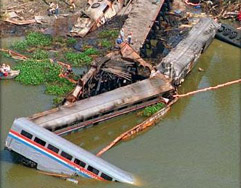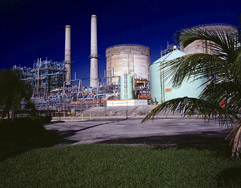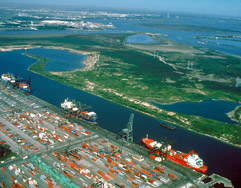Written by Mary Scott Nabers
President and CEO, Strategic Partnerships Inc.
 Now that the Trump infrastructure plan has been released, the question is, “Will it hold water?”
Now that the Trump infrastructure plan has been released, the question is, “Will it hold water?”
That’s a question of high interest to people who deal with water issues on a daily basis. City, county and state officials who need financial assistance for projects related to water resources and water systems had hoped for some sort of timely help from Congress. It appears, however, that no immediate assistance will be forthcoming. Despite bipartisan support for infrastructure reform, there is no consensus on how to get started.
The only good news is that public officials don’t have to wait on Congress. Funding options are readily available through all types of alternative funding sources. The only thing really required is visionary and bold leadership from officials who realize that the cost of doing nothing is simply too great.
Rural leaders fear that their critical water projects are not large enough to draw interest from alternative funding sources. There are ways to get around that problem…consolidate a number of projects and lump them all into one procurement process.
However, the most common question is – where and how do we find funding for critical infrastructure projects that must be addressed now? And will we ever solve the chronic funding shortfalls that have left the nation’s water infrastructure in a state of disrepair? Two quick answers – alternative funding sources are available now and the federal government will not, in our lifetime, be able to finance the thousands of critical infrastructure projects that cry out for attention. Best we move on to other options for dealing with infrastructure issues.
The administration’s $1.5 trillion infrastructure plan only includes $200 billion in “seed money” over the next 10 years. The President has said he hopes the federal funding will encourage another $1.3 trillion investment from sources outside the federal government. That may or may not happen but whatever the verdict, it won’t happen soon.
And, most people who understand water issues know that government’s investment in water-related projects won’t come close to addressing even a minimum number of long overdue projects. Estimates are that a $660 billion investment in the nation’s water systems will be needed over the next two decades. According to the American Society of Civil Engineers, that includes $271 billion just for water treatment systems. The American Water Works Association estimates it will take an investment of $1 trillion over the next 25 years to expand drinking water service to meet ongoing demands and quality controls.
Although short on funding strategies, the Trump plan may bring some relief to other issues that could have a positive effect on the reconstruction of American water infrastructure. The plan promises to expedite federal regulatory and permitting processes. It suggests accelerating environmental reviews and the creation of a “One Agency, One Decision” strategy to keep project owners from having to navigate multiple federal agencies and permitting hurdles that delay investments and increase costs. The President asked Congress to reduce to a maximum of two years the current permitting processes which currently might take up to 10 years for major projects.
The Water Infrastructure Finance and Innovation Act (WIFIA), a staple in providing long-term, low-cost loans for water projects, would be expanded under the administration’s plan. And, the plan would allow reimbursement for costs incurred prior to closing of a loan under WIFIA, precluding eligible borrowers from having to raise large sums of money before loan closing.
The U.S. Department of Agriculture’s Rural Utilities Service (RUS) lending program would benefit from expanded funding. However, two other popular programs that have been used to fund water infrastructure needs – the Clean Water ad Drinking Water State Revolving Funds – would receive no additional funding.
So, will the plan hold water? That remains to be seen, but at least the plan will begin the debate. Possibly Congress will find a way to reach consensus and take the first step toward solving the nation’s water infrastructure crisis. That would be a very good thing!
…
Mary Scott Nabers is president and CEO of Strategic Partnerships Inc., a business development company specializing in government contracting and procurement consulting throughout the U.S. Follow Mary on Twitter.
Tags: Inc., Mary Scott Nabers, Strategic Partnerships, Trump Infrastructure Plan, Water Infrastructure, WIFIA






 RSS Feed
RSS Feed